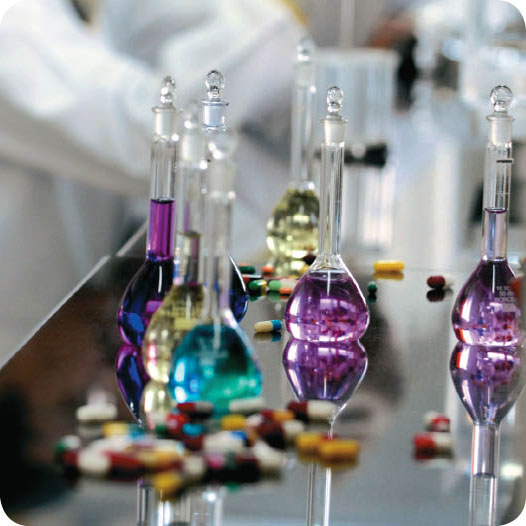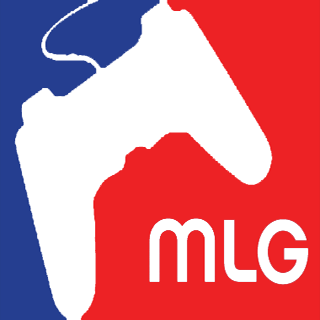
drugstr
Central, NJ
Male, 61
I have worked as a drug discovery scientist for over 30 years performing experiments to help identify novel chemical compounds for their potential in treating diseases in the areas of infection, inflammation and cardiovascular disorders. I have a good familiarity with the entire process from discovery to safety to clinical trials and even marketing. Ask me about the business of Big Pharma. I’m happy to comment on any and all hot-button issues. My opinions are quite often not pro-business.
If by cure you mean cancer being no more serious than a sore throat then no, not in this or any future lifetime. Cancer will always be a complicated condition that will require accurate diagnosis, careful characterization, appropriate treatment and exhaustive monitoring. As you know there are some cures already. Some cancers are successfully treated with surgery. Bone marrow transplants work for some leukemias. And targeted therapies, molecules or antibodies that are designed to be killers of very specific types of cancer cells, are emerging. One in particular has been on the market for over 10 years. It works, but the downside is its specificity. It only works on a few types of cancers. That’s not to say that progress isn’t being made. With each passing year the chances get better and better that the cancer you may eventually get will be treatable with an effective, targeted therapy that is currently in the pipeline or has yet to be discovered. Advances in cancer will more than likely continue to be a slow, stepwise process.
In college I was aware that my professors not only taught classes, but also had laboratories in which they did the research which advanced their reputations and contributed new knowledge to science. I thought, “Who wouldn’t be attracted to this noble endeavor?”, and soon found my way into my organic chemistry professor’s lab working alongside PhDs and graduate students. I learned a lot, performed well, enjoyed the collegial experience and within a semester had accomplished work worthy of publication. I was hooked. I had begun my research career. In advancing from chemistry to biology to drug research one overall concept has continued to provide fulfillment for me. That is, when you do research, you have the opportunity to be the first person on earth to behold a new bit of knowledge. It may only be a small piece of information, but you’re the first and it’s yours to own and report. I’m still hooked.
It is well known that there is not. This is assuming that the definition of “cure” is a therapy that, subsequent to its administration, will no longer be necessary. A vaccine would fit this definition, but HIV-vaccine research has failed in several attempts. Nevertheless, some development is still ongoing. Current anti-HIV cocktails are maintenance therapy, probably for life. I say probably because there are a handful of patients that have been “seemingly” cured by them and are being studied. There are also some people who are immune to HIV due to certain genetic factors which are partially understood. One line of research being explored is the genetic modification of a sample of a patient’s own T cells with one of these factors and placing them back in the bloodstream. It’s an interesting concept, but not widely expected to be successful. So there is hope. But if your question is really aimed at revealing a hitherto unknown, secret cure that is being withheld for reasons nefarious, I’ll deal with that in the next question.
Pharmaceutical companies are not sinister enterprises. They are however, opportunistic. When considering where to invest their resources, they look first at the size of the affected population then determine how best to rapidly develop a market. Trust me, if a curative drug target presented itself as the most tractable they would pursue it, not only because it would be the quickest path to market, but it would also be the most competitive. Big Pharma continues to hunt for cures in infectious diseases with drugs and vaccines. Consider the recent registration of drugs for the hepatitis C virus and vaccines for HPV. Targeted anti-tumor drugs are being sought as are gene therapies to correct inborn defects and RNAi technology to modulate errant gene activity. Cures are not off the table so long as they are viable. So why does it appear to many that they are? Let’s face it. There aren’t many examples of cures using medicine alone. I know that sounds weird, but think about it. Other than treatment of infections with antibiotics or prevention with vaccines, what else can be considered a cure? All right, maybe a couple of others – glucocorticoids for some acute inflammatory conditions like rashes, allergen shots and targeted cancer drugs. Line them up against the list of chronic conditions being treated medically and the cures almost disappear in the public eye. The majority of chronic diseases are simply not curable when the underlying causes are damage by aging, abuse or the family gene pool. A word or two about AIDS. The attention given to the HIV problem and its failures is understandable. It is, after all, an infectious disease and as I’ve said, is among the most curable of disease types. Viral diseases are typically best controlled by vaccines, but since HIV interferes with the immune system, a sufficient immune response cannot be mounted to protect the patient. For several reasons, small molecule anti-virals can control HIV, but not eradicate it. So, to the question regarding willingness of Big Pharma to pursue treatments in lieu of cures I say the following. In every advance in HIV drug research scientists focused their efforts on blocking the action of a known, critical component of the virus’ life cycle which, in principle, should have wiped it out. To be sure, failure to cure was a disappointment, but was clearly not a design.
Special Education Teacher
 Should special-needs students be separated from other students?
Should special-needs students be separated from other students?
Private Detective
Professional Gamer
 What's the longest playing gaming session you've ever had?
What's the longest playing gaming session you've ever had?
I have SOOOOO many thoughts on this. I won’t be able to say everything. How’s this for a start? “When you buy a brand name drug you’re not paying for the pill, but rather the intelligence that’s behind it. When you buy a generic drug you’re paying for the pill.” ….. me It’s well known that drug development costs are enormous. It may cost over a billion dollars to bring a new drug to market, but what’s not understood is that as much as ten times that amount may also have been spent at the same time on drug candidates that never make it to market for various reasons. This is the true cost of drug development and the tab must be paid in order for us to continue to enjoy the benefits of better drugs in the future. So in the handful of years in which a company’s patent rights prevail a pill might, for argument’s sake, cost 10 cents to manufacture, sell for 3 dollars, but return a profit of about 30 cents. So on accounting principles this seems justified, but in my opinion, not always. It costs about the same to develop a “me-too” drug as it does to bring forward an innovative one. I’m not talking about generics here, but rather branded drugs that work the same, are chemically related, but different enough to be patentable. Case in point - consider the succession of statins that have appeared over the years. I personally think that it’s unfair for consumers to bear the full cost of copy-cat research since in principle it was largely unnecessary to produce the product and posed a lot less risk to the manufacturer. So all hail generic drug companies for all they do in keeping healthcare costs affordable! No argument there. Keep in mind though that when they sell you that 10 cent pill for a dollar, they’re making a substantially larger profit than the developer. To be fair, that windfall doesn’t last very long. In time, with expiring rights and competition the price will fall to that 30 cent level. Higher prices for branded, innovative drugs are justified so long as pricing is fixed at a level that yields a reasonable return as opposed to charging what the market will bear. In my opinion, high prices for copy-cat drugs are not justified unless they possess a valid, therapeutic advantage over the innovator (ask me more about this). In spite of the lower prices charged by generic companies their profits are often quite substantial because their development costs are virtually nil.
Ask that question to any pharmaceutical scientist and he/she will tell you that it’s the part played in contributing to the development of a marketed drug, particularly a life-saving one. In my own experience about 20 years ago I made some critical contributions to the discovery of a drug for the treatment of a somewhat rare, often deadly, lung infection. At the time, the only treatment available was not only frequently unsuccessful, but invariably caused severe, adverse side effects. Before large clinical trials of this drug were begun, the FDA allowed us to treat 60 “salvage” patients, i.e. people who failed standard-of-care therapy and were most likely destined to die. Our treatment saved all but 3 of them and the FDA quickly approved the drug for use in salvage therapy and soon after became the new standard-of-care for this condition. I can honestly say that the award I won for my efforts means less to me than the memory of my participation in that successful, life-saving project.
No drug is safe. There are safety concerns with every medicine on the market. One of the requirements for approval of a new medicine by the FDA is for the drug company to reveal at what dose level the probable toxicities will appear and to prove that the doses used in therapy will be far lower. That means that the drug companies will push the safety envelope in animal studies to determine what bad things might happen.[Sounds cruel, but it’s not. Readouts are no worse than you having lab tests done on your blood.] Prescribers are then required to inform patients about the particular risks and monitor the patient during therapy if necessary. That’s as sure as you can be. The issue with drug safety is not so much the safety itself, but rather the transparency in publicizing the information. Complete and accurate disclosure is crucial in determining benefit versus risk. My company has indeed had public issues of this kind, but to my knowledge it did not deliberately put patients at risk. It happens quite often that actionable safety issues are only recognized after a drug had been widely prescribed. Inevitably in these matters controversy is generated along with civil and criminal investigations. It’s messy but necessary for improving the regulatory system that protects us.
-OR-
 Login with Facebook
Login with Facebook (max 20 characters - letters, numbers, and underscores only. Note that your username is private, and you have the option to choose an alias when asking questions or hosting a Q&A.)
(A valid e-mail address is required. Your e-mail will not be shared with anyone.)
(min 5 characters)
By checking this box, you acknowledge that you have read and agree to Jobstr.com’s Terms and Privacy Policy.
-OR-
 Register with Facebook
Register with Facebook(Don't worry: you'll be able to choose an alias when asking questions or hosting a Q&A.)